Interested in the world of organic farming? Dive into this blog post to explore the concept behind it, its growing scope, and the role government policy plays in its development. We’ll also delve into the advantages and disadvantages of organic farming, giving you a well-rounded picture of this approach to agriculture.
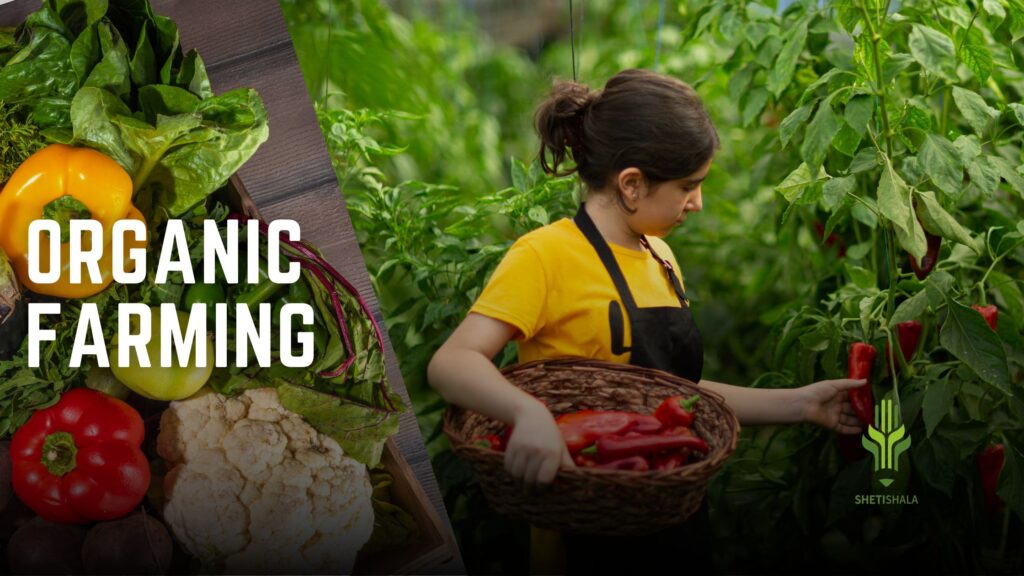
CONCEPTS, PRINCIPLES AND SCOPE OF ORGANIC FARMING
Organic farming is one of the several approaches to meet the objectives of sustainable agriculture. Organic farming is often associated directly with, sustainable farming. However, organic farmingand sustainable farming policy and ethics-wise are two different terms. Many techniques used in organic farming like intercropping, mulching and integration of crops and livestock are not alien te various agriculture systems including the traditional agriculture practiced in old countries like Indis.
However, organic farming is based on various laws and certification programmes, which prohibit the use of almost all synthetic inputs and health of the soil is recognised as the central theme of the method. Organic products are grown under a system of agriculture without the use of chemical fertilisers and pesticides with an environmentally and socially responsible approach. This is a method of farming that works at grass root level preserving the reproductive and regenerative capacity of the soil, good plant nutrition and sound soil management, produces nutritious food rich in vitality which has resistance to diseases.
CONCEPTS OF ORGANIC FARMING
Preserving the reproductive and Organic farming endorses the concept that the soil, plant, animals and human beings are linked. Therefore, its goal is to create an integrated, environmentally sound, safe and economically sustainable agriculture production system. Soil is a living system linked to un organism with different components. Human interact with these natural components (minerals, organic matter, micro-organisms, animals and plants) to achieve harmony with nature and create a sustainable agricultural production. A key feature of organic farming is the primary dependence on natural resource and those developed locally (green manures, crop residues, farm wastes etc), rather than external inputs (especially synthetics).
The farmer manages self-regulating ecological and biological processes for sustainable and economic production of products. Organic farming systems do not use toxic agrochemical inputs (pesticides, fungicides, herbicides and fertilisers). Instead, they are hased on development of biological diversity and the maintenance and replenishment of soil productivity. The concept of organic farming is based on following principles.

Nature is the best role model for farming, since it does not use any inputs nor demand unreasonable quantities of water. Entire system is based on intimate understanding of nature’s ways. The system does not believe in mining of the soil of its nutrients and do not degrade it any way for today’s needs. Soil in this system is a living entity. Soil’s living population of microbes and other organisms are significant contributors to its fertility on a sustained basis and must be protected and nurtured at all cost. Total environment of the soil, from soil structure to soil cover is more important.
Thus, in today’s terminology, it is a method of farming system which primarily aims at cultivating the land and raising crops in such a way, as to keep the soil alive and in good health by use of organic wastes (crop, animal and farm wastes, aquatic wastes) and other biological materials along with beneficial microbes (bio-fertilisers) to release nutrients to crops for increased sustainable production in an eco-friendly pollution free environment.
The Main Principles of Organic Farming
Organic farming is strictly regulated in each country. Still, there are some principles common to all organic farmers. These are as follows:
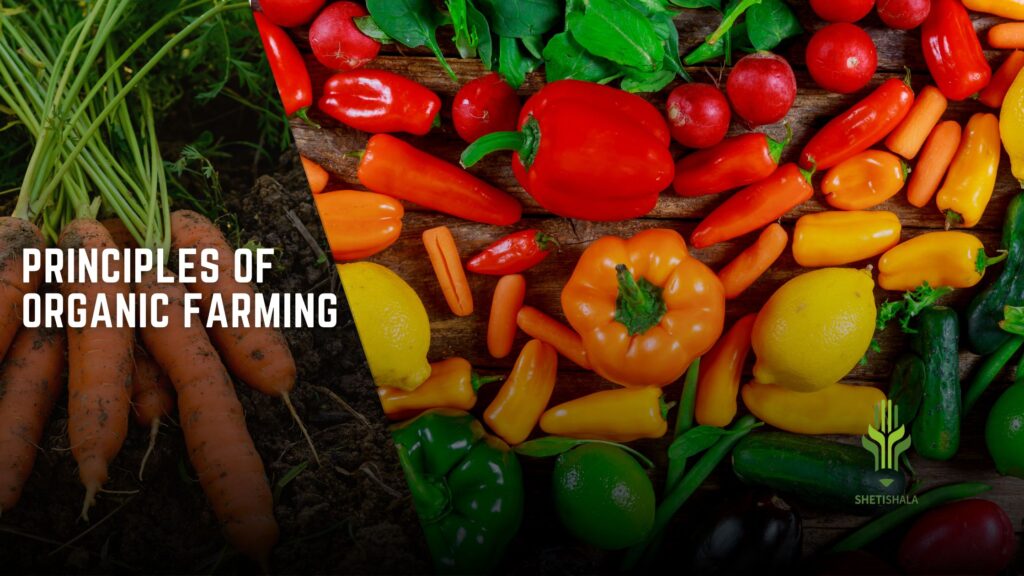
The principle of health claims that organic farming is intended to protect and enhance the health of all organisms (this includes soil microorganisms, as well as humans)
The principle of ecology is based on the fact that organic farming should protect and benefit the environment (landscape, climate, natural habitats, biodiversity, air, water, and soil)
The principle of fairness aims to provide socially and ecologically appropriate management over environmental resources, as well as provide a sufficient supply of quality food and other products.
The principle of care stresses precaution and responsibility as the key concerns in organic farm management.
SCOPE OF ORGANIC FARMING
The movement, started with developed world, is gradually picking up in developing countries. But demand is still concentrated in developed and most affluem countries Local demand for organic food is growing. Success of organic movement in India depends upon the growth of its own domestic markets, India has traditionally been a country of organic agriculture, but the growth of modern scientific, input intensive agriculture has pushed at agricul But with the increasing awareness about the safety and quality of foods, long-term sustainability of the system and accumulating evidences of being equally productive, the organic farming may emerge as an alternative system of farming which addresses the quality and sustainability concerns.
Large-scale use of inputs both organic and inorganic has been a common sight in many of the farming situations in the past several decades. However, in recent times the concept of organic farming is being forcefully projected as the method for sustaining the agricultural production in the country.
Organic farming is a form of agriculture which avoids or largely excludes the use of synthetic ferilisers and pesticides, plant growth regulators and livestock feed additives. Organic farming relies on crop rotation, crop residues, animal manures, bio-fertilisers and mechanical cultivation to maintain soil productivity, to supply plant nutrients and to control weeds, insects, diseases and other pests. Before jumping into organic farming bandwagon, we need to have answers to the following: What level of crop yield/productivity is acceptable? Is it suitable for country like India with a large population to feed? Whether available organic sources of plant nutrients sufficient for pure organic farming? And, are organic farming technologies sustainable in long run? Whether organic farming can address the multitude of problems faced by Indian agriculture at present is a major issue. Further, the virtues attributed to organic farming need to be rechecked before coming to any conclusions.
INITIATIVES FOR PROMOTING ORGANIC FARMING:
The first confer Loadigenen Gemenic farming in India was organised by the Association for Propagation of Indigenous Genetic Resources (APIGR) in Oder the ober meetings, mention must be mere held at different places in the country unwards the end of 1950s. Here, mention must made of the Dondi Conference in Maharashtra, the antich was defe with the support of the stafarming movement in India.
The Rajasthan College of Agriculture with the support of the state government organised a meeting on organic agriculture 1992. The United Planters Association of South India (UPASI) organised two national level conferences on organic farming in 1993 and 1995, The ARISE (Agricultural Renewal in India for a Sustainable Environment) is a major organisation in the country engaged in the promotion of organic farming.
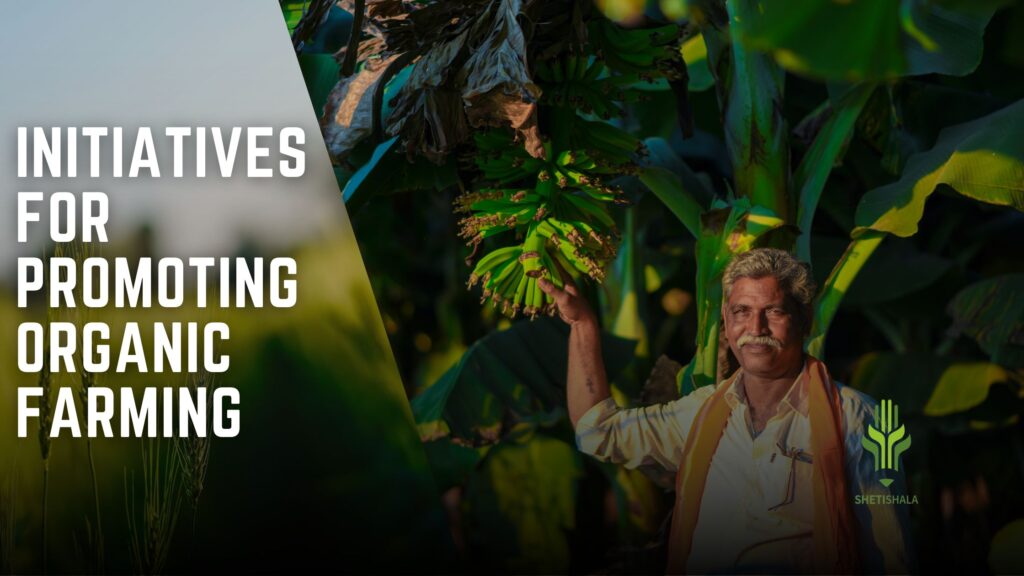
The ARISE was founded in 1995 at a national conference of organic farming held at Auroville. The ABY SE comprises of a supporting network of regional groups aiming at sustainable environment by protecting bio-diversity and promoting organic agricultural practices. The selection of Auroville for the conference was apt as it housed the Arabindo Ashram and the poncering work under its auspices on building technology, alternative energy research, wasteland development, afforestation and organic agriculture.
By 1980, three groups of Indians had taken to organic farming. The first one consisted of arban educated technocrats for peripheral interest, which did not last long. Educated farmers ssisted of the second group whose farming practices were based on scientific knowledge. The third group practiced organic farming through trial and error.
Successful organic farmers in India are those who have access to sufficient natural resources like, water and other organic smputs mostly on their own farms. These farms produce crops like sugarcane, areca, cocoa, coconut, pepper and spices. Many of them have shown that switch over to organic farming do not affect yields and income and more importantly, knowledge/expertise is available for successful adeption of organic farming in the country.
GOVERNMENT POLICY ON PROMOTING ORGANIC FARMING
Organic farming appears to be one of the options for sustainability. Starting of organic agrica in India in 1900 by Sir Albert Howard, a British agronomist in North India, Developmen Indore Method of aerobic compost (Howard 1929), Bengaluru method of anaerobic compra (Archarya 1934), NADEP Compost (ND Pandari Panda, Yavatmal 1980) initiated organic agriculture
in India The year 2000 is very important year for India from organic point of view. The four map happenings were made during the year 2000. These are:
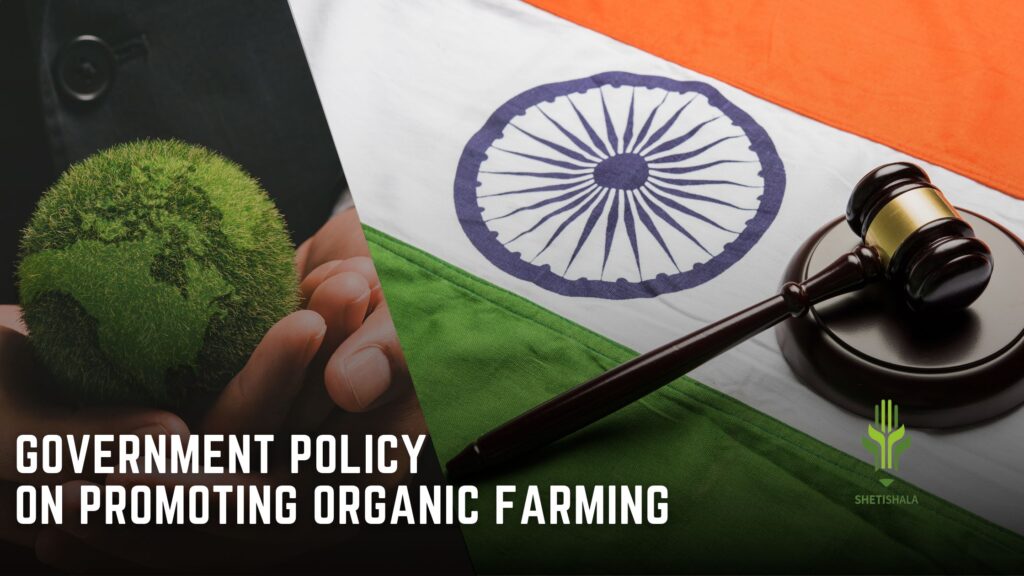
1. The Planning Commission constituted (2000) a steering group on agriculture who idemified organic farming as national challenge and suggested that it should be taken in the form of a project as major thrust area for 10th Plan. The group recommended organic farming in NE region, rainfed areas and in the areas where the consumption of agrochemicals a low or negligible.
2. The National Agricultural Policy (2000) recommended promotion of traditional knowinge of agriculture relating to organic farming and its scientific upgradation.
3. The Department of Agriculture and Cooperation (DAC). Ministry of Agricult constituted (2000) a Taskforce on Organic Farming under the chairmanship of Sim Kunwar Ji Bhai Yadav and this task force recommended promotion of organic farming
4. The Ministry of Commerce launched the National Organic Programme in April 2000 and Agricultural and Processed Food Products Export Development Authority (APEDA) implementing the National Programme for Organic Production (NPOP). Under the NPOP documents like national standards, accreditation criteria for accrediting inspection and certification agencies, accreditation procedure, inspection and certification procedurs have been prepared and approved by National Steering Committee (NSC).
The policy of Ministry of Agriculture seeks to promote technically sound, economically viable, environmentally non-degrading and socially acceptable use of natural resources in fivor of organic agriculture. The policy seeks to actualise the area and crop potential for strengthening rural economy, promoting value addition, accelerating growth of agribusiness and securing a far standard of living for the farmers and agricultural workers and their families
Advantages of organic farming:
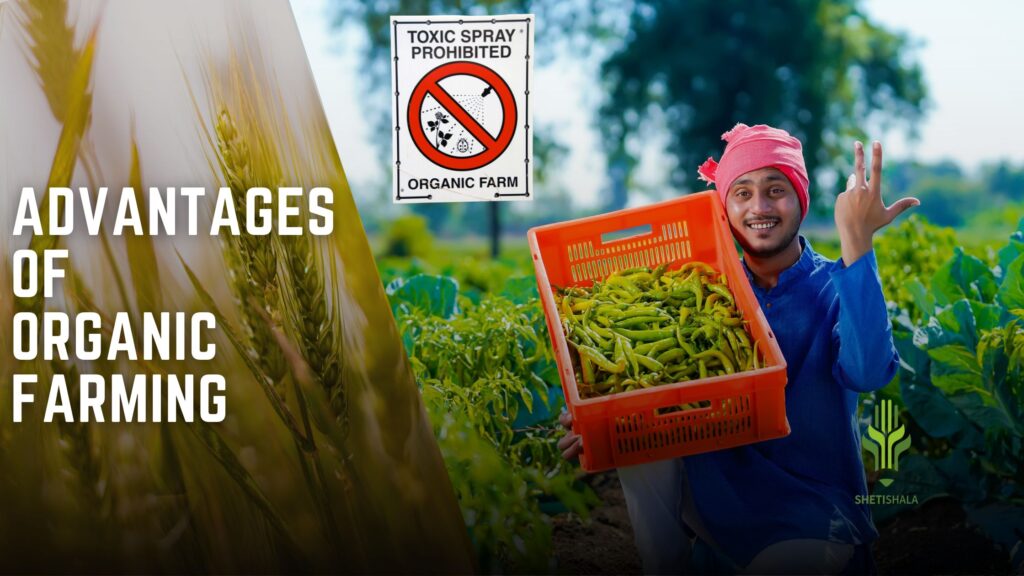
Soil Protection
One of the primary benefits of organic farming is its commitment to soil health. By avoiding chemical fertilizers and pesticides, organic farmers protect the natural composition of the soil, promoting biodiversity and preserving essential microorganisms vital for nutrient-rich crops. From enriching soil health to safeguarding biodiversity, the uses of organic farming are diverse and impactful.
Water Conservation
Organic agriculture practices prioritize water conservation. By using natural irrigation methods, crop rotation, and mulching, farmers can reduce water consumption, ensuring that this precious resource is utilized efficiently and sustainably.
Environmentally Friendly
Want to make a positive impact on the environment? That’s why organic farming is essential. Organic farming actively promotes biodiversity and the well-being of ecosystems. By steering clear of harmful chemicals, it minimizes pollution and helps preserve wildlife, ensuring a harmonious coexistence between agriculture and nature.
Safer Crop Production
Organic crops are free from harmful chemical residues, making them safer for farmers to grow and consumers to consume.
Long-Term Sustainability
Sustainable organic farming practices focus on the long-term rather than short-term gains.
Health Benefits of Organic Farming
Organically grown crops are rich in essential nutrients, contributing to improved human health. Additionally, consuming food free from chemical additives and pesticides may reduce the risk of certain diseases and allergies.
Carbon Sequestration
Organic farming plays a vital role in mitigating climate change. By promoting healthier soil with higher organic matter, carbon is sequestered from the atmosphere and stored in the ground, thus reducing greenhouse gas emissions.
Climate Resilience
Organic farming has proven to be more resilient in the face of extreme weather events. Organic farms tend to have better water retention, reduced soil erosion, and enhanced adaptability to changing environmental conditions.
Green Manure Cover Crops
Green manure crops, such as legumes, are grown specifically to be plowed back into the soil while they are still green.
Mulching
Mulching involves covering the soil around plants with materials like straw, leaves, or grass clippings.
Integrated Pest Management (IPM)
IPM is a comprehensive approach to managing pests that combines preventive measures, biological control, cultural practices, and, if necessary, the judicious use of least-toxic pesticides.
Natural Weed Control
Organic farmers use various methods to control weeds without synthetic herbicides, such as hand weeding, hoeing, and mechanical cultivation. Mulching and cover crops can also help suppress weed growth.
Water Conservation
Organic farming practices such as mulching, drip irrigation, and rainwater harvesting are used to minimize water usage and improve water efficiency on the farm.
Disadvantages of Organic Farming

Higher Costs
Organic farming typically yields lower crop volumes compared to conventional methods. This is due to factors like pest susceptibility and the absence of synthetic fertilizers. The increased labor required for weeding, pest control, and crop rotation also adds to the cost. These factors translate to pricier organic produce for consumers.
Lower Yields
Organic farming methods like crop rotation and relying on natural fertilizers can lead to lower crop yields compared to conventional farming that uses synthetic fertilizers and pesticides. This can be a challenge for meeting food demands for a growing population.
Shorter Shelf Life
Organic fruits and vegetables often have a shorter shelf life because they lack artificial preservatives commonly used in conventional farming. This can lead to spoilage and waste.
Knowledge Intensive
Organic farming requires a deeper understanding of ecological processes and knowledge of natural pest control methods. Farmers need to be skilled in crop rotation, companion planting, and managing soil health. This can be a barrier for new farmers entering the organic space.
Limited Availability
Organic farming is practiced on a smaller scale compared to conventional agriculture. This can lead to limited product availability, especially for off-season crops.
Certification Challenges
Organic certification can be a complex and expensive process for farmers. This can discourage smaller farmers from entering the organic market.
check my others blogs

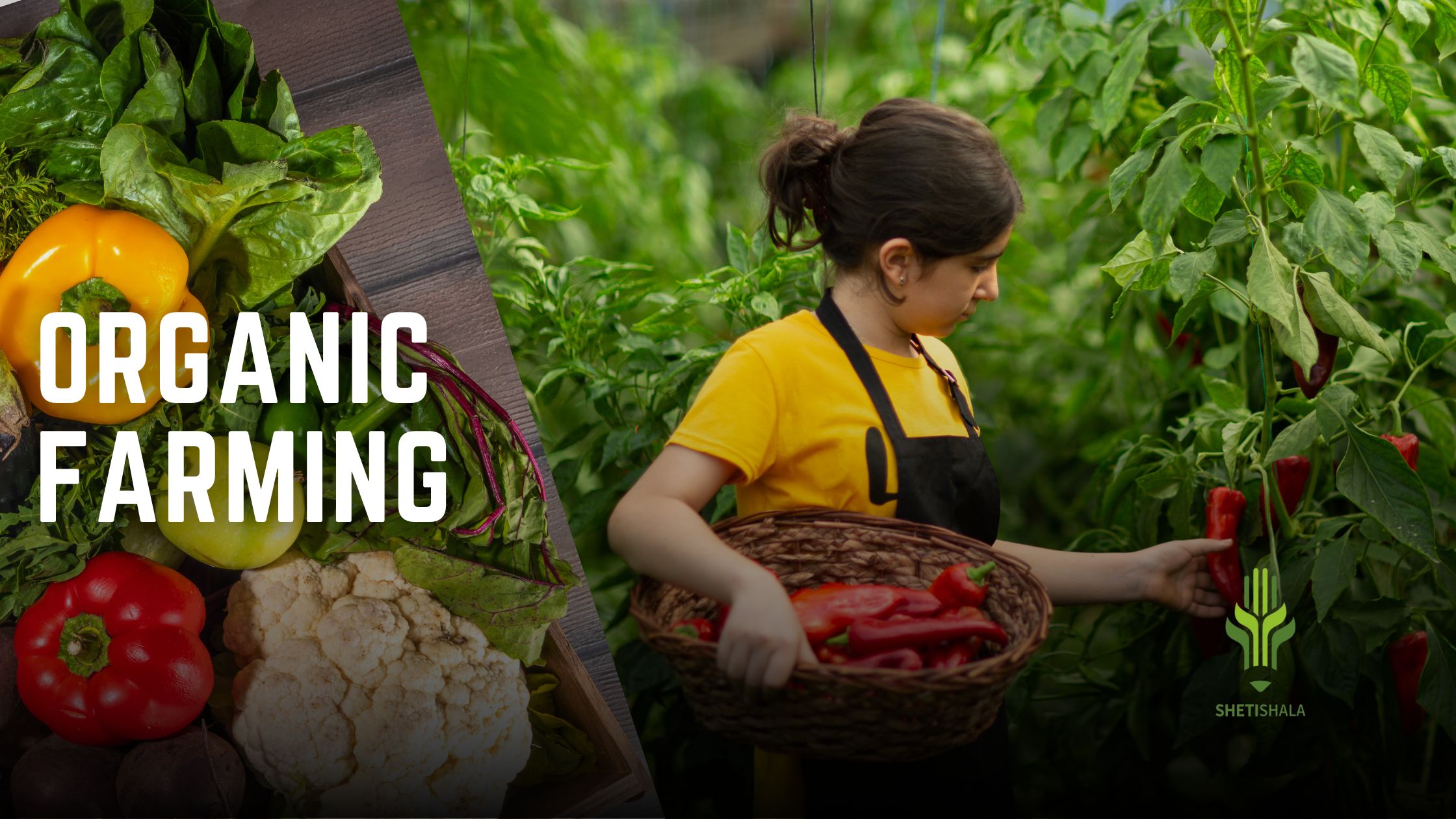
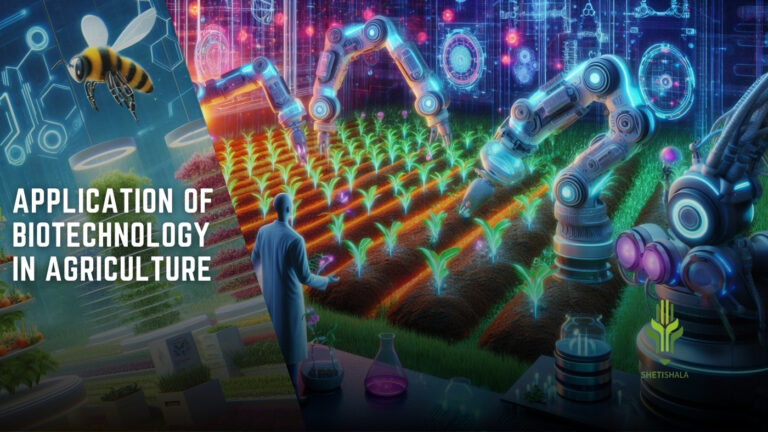


Hi shetishala.com webmaster, Your posts are always well structured and easy to follow.